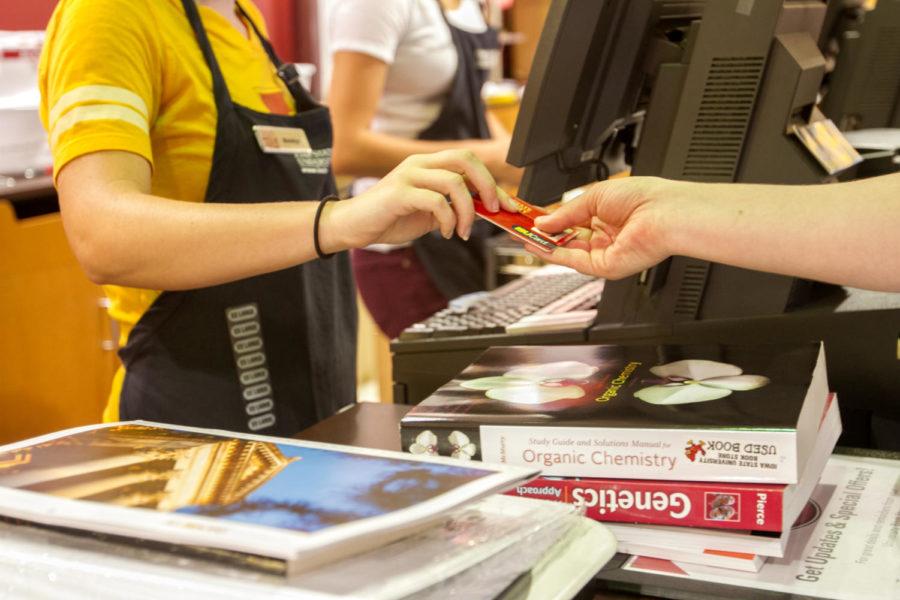Editorial: Changes to bookstore, CyCash policies foster student financial responsibility
There is a certain sense of dread that comes for all students who have purchased their books from the university bookstore when the end of the year approaches and they prepare to sell back all the books they’ve decided not to keep. That decision for many students, to sell back or keep their textbooks, will come in the next two weeks as they wrap up their classes.
August 2, 2012
In a time of ever increasing education costs, it’s nice to get some good news for a change.
On top of tuition set-asides going away now, which we learned about earlier this summer, ISU students have even more good news for this fall. As of July 30, students shopping for their books and supplies at the University Book Store will no longer be charged Iowa sales tax.
That’s right Folks, read our lips: No more textbook taxes.
This comes after the decline and fall of Campus Book Store, located right across from the Memorial Union on Lincoln Way. The Iowa tax code has had the provision for not charging taxes on educational materials for years, but according to Warren Madden, ISU senior vice president of business and finance, Iowa State had an agreement with Campus Book Store to continue charging taxes on textbooks to allow the two stores to remain competitive.
Now, with Campus Book Store closing, that agreement has dissolved.
The effort to cease assessing sales taxes on textbook purchases will save students hundreds of dollars over the course of their four or five years here as an undergrad. As it is not unusual for engineering students to have textbook bills reaching $1,000, the new tax policy would save those students $70 right off the top.
Not paying state sales tax results in consolidating students’ expenses related to being a student.
Simultaneously with what amounts to a permanent 7 percent discount on their textbooks, the university is now allowing students to charge their textbooks on their U-Bills, right at the register. With no need to pay for their books up-front, students can now take advantage of any extra student loans they have taken out.
Student debt, however, is an increasingly serious problem. In America, student loan debt is over $1 trillion as of this year, making it higher than national credit card debt. And up until now, a student could load his or her CyCash account with up to $500 (and pay for it by sending it to his or her U-Bill) and use the money to pay for extra things the University Book Store stocks, from iPads to Xboxes. To address that concern, though, the university has curtailed the ability of students to spend money in such a way by limiting CyCash accounts to $50.
These measures should ensure students use their financial resources in more responsible ways, a skill that cannot be overvalued and which is increasingly essential as students seek financial independence.

















